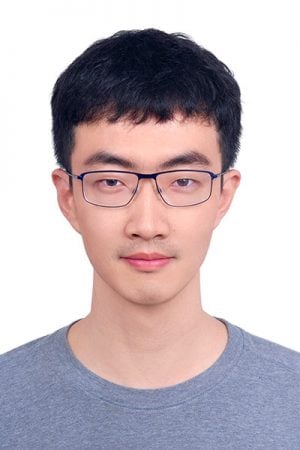Candidates for the computer science tenure-track faculty position openings in the College of Computing will be visiting campus this semester, including Tiehan Duan.

Bio
Dr. Tiehang Duan has more than nine years research experience working on machine learning and its applications in brain-computer interfaces and medical informatics. He is currently a visiting research fellow at the Department of Artificial Intelligence and Informatics at Mayo Clinic and previously worked as a research scientist at Meta Platforms, Inc. (Facebook) for three years.
He received his Ph.D degree in computer science and engineering at State University of New York at Buffalo and his B.S degree in information and telecommunication engineering at Shanghai Jiao Tong University. He previously led multiple research projects on machine learning and medical informatics, and serves as a key member in numerous grants funded by NSF, NIH, and Mayo Clinic. He has a proven track record of more than 20 publications in top computer science conferences and journals. His research interest is mainly on continual learning, trustworthy learning, meta learning and their applications in the medical domain.
Candidate: Tiehan Duan
Date and time of visit: Wednesday, Feb. 5, 2025, 3 p.m. ET, following a social hour in Rekhi 218
Location: Rekhi G005
Abstract
Retain and Adapt: Sequential Learning with Data Distribution Shifts
Sequential learning aims to adapt to non-stationary data distributions while retaining previously acquired knowledge. Related sequential learning techniques has huge potential for applications in online brain signal decoding under subject shifts, with its challenges lying in the following aspects 1) the knowledge that model learned from previous subjects doesn’t readily fit to future subjects, and fast adaptation is needed in the process 2) the previous learned knowledge could be easily erased after learning progresses on shifted data distribution.
We develop bi-level optimization methods and continual learning approaches for solving this fundamental sequential learning problem, with considerations on related challenges including imbalanced data volume, subject shift detection, model generalization with limited data resource, and robustness to data variation and corruption, etc. Effectiveness of the developed methods is demonstrated with both theoretical and empirical supports, and reveals its potential in real-world scenarios.
About the College of Computing
The Michigan Tech College of Computing, established in 2019, is the first academic unit in Michigan dedicated solely to computing, and one of only a handful such academic units in the United States. The college is composed of two academic departments. The Computer Science department offers four bachelor of science programs in computer science, cybersecurity, data science, and software engineering; four master of science programs in applied computer science, computer science, cybersecurity, and data science; and a doctoral program in computer science. The Applied Computing department offers four bachelor of science programs in cybersecurity, electrical engineering technology, information technology, and mechatronics; two master of science programs in health informatics and mechatronics; and a doctoral program is in computational science and engineering.
Questions? Contact us at computing@mtu.edu. Follow the College of Computing on Facebook, Instagram, LinkedIn and Twitter.